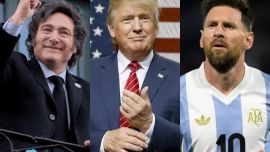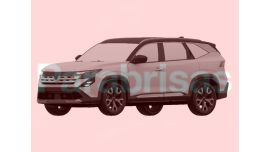German Chancellor Olaf Scholz made a fresh appeal for a swift conclusion to talks on a major trade agreement between the European Union and four South American economies that is opposed by France.
Scholz, who met with French President Emmanuel Macron on Wednesday in Berlin, said technical negotiations on an EU-Mercosur deal are “well advanced,” the agreement is backed politically by the “vast majority” of EU members and “should now be concluded quickly.”
“For the final few metres of the negotiations, we need pragmatism and flexibility on all sides, because the Mercosur agreement is groundbreaking for diversifying and strengthening the resilience of our economy,” Scholz said in a speech at an industry lobby conference.
He didn’t say whether he had discussed Mercosur with Macron, who has complained it would enable cheap imports from countries with less-stringent environmental standards.
“To put it bluntly: we in Germany have not handed over responsibility for trade policy to Europe so that no more agreements can be concluded, but so that more agreements are concluded,” Scholz said.
A preliminary deal between the EU and Mercosur — comprised of Argentina, Brazil, Uruguay and Paraguay — was concluded in 2019 after 20 years of talks, but the agreement hasn’t been finalized.
The pact would create an integrated market of 780 million consumers, making it one of the world’s biggest free-trade deals.
It would also pull the two regions closer amid a broader global competition for influence in which China and Russia have sought to make inroads in resource-rich nations across the Americas.
Scholz reiterated his goal of splitting trade negotiations into an EU-led part and a second string in which member states must be involved.
“This can then be organised in such a way that this second part does not only come into force when everyone has accepted it, but that it applies immediately to each individual state that has ratified it,” Scholz said.
He also reinforced Germany’s wish for a negotiated settlement to avert EU tariffs on imported electric vehicles made in China.
The EU “must finally tackle the areas where cheap Chinese imports are actually harming our economy, such as steel,” he added.
by Michael Nienaber, Bloomberg




















Comments